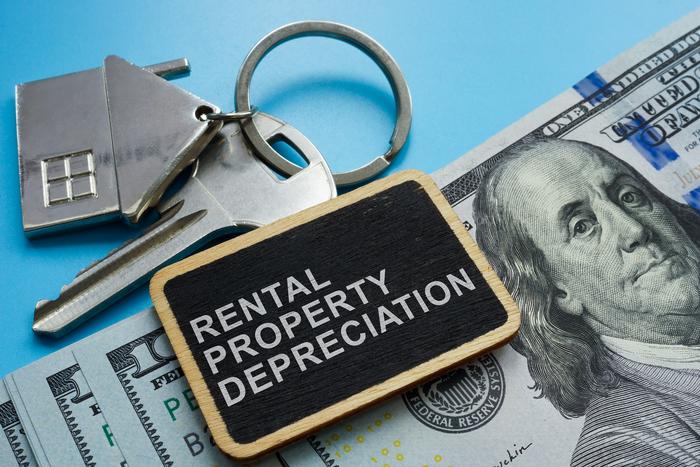A 1031 exchange is a tax deferral strategy that allows you to sell investment real estate and make an immediate tax-free exchange for like-kind property. In other words, you can trade your old property for another one without paying taxes on the transaction as long as both properties are similar in nature (such as commercial office buildings or retail strip malls). Below we will review the basics and give you a better understanding of the 1031 exchange process.
What is a 1031 exchange?
A 1031 exchange is a tax-deferred exchange of property. The IRS defines it as "a transaction in which the ownership rights in two similar or identical pieces of real estate are exchanged for one another, commonly referred to as a 'like-kind' transfer." The key term here is "like-kind," which means that the properties being exchanged must be similar and used for business or investment purposes.
In other words, you can't buy a house with your tax refund and sell it back to your friend at an inflated price; instead, you should use your refund to purchase another property (e.g., commercial real estate) that you intend to hold onto long term. The goal of the exchange is not simply to get cash—it's about buying an asset with deferred capital gains taxes so that they're paid later when you sell the new property at a profit (or loss).
How Does a 1031 Exchange Work?
A 1031 exchange is a tax-deferred exchange of property that allows you to defer capital gains taxes when you sell real estate. You can exchange one property for another, or exchange property for cash. If you're an investor who buys and sells properties regularly as part of your income strategy, then using a 1031 exchange may be beneficial for you.
First, it's important to know what types of properties are eligible for this type of transaction: investment properties only—you can't use them on homes where you live (unless they happen to be rental units). These include single-family homes, condominiums, and townhomes; multifamily buildings (such as duplexes and fourplexes); warehouses; shopping centers; office buildings; hotels and motels; apartment complexes with five or more units; industrial buildings like factories or plants where manufacturing takes place; self-storage facilities—but not vacant land like farms or undeveloped parcels with no structures on them yet!
-
Delayed Exchange
If you are looking to sell your investment property and want to defer paying taxes until another property is sold, then a Delayed Exchange may be for you.
In short, a Delayed Exchange allows investors to postpone paying taxes on the sale of an investment property until they sell another property. It’s also known as a Rollover Exchange since it “rolls over” the gain (or loss) from one property into another. In this way, any capital gains taxes can be deferred until the second property is sold—which means that any appreciation in value will be taxed at long-term capital gains rates instead of ordinary income rates.
-
Simultaneous Exchange
Simultaneous exchanges are for real estate investors who want to sell their property and purchase another at the same time. Simultaneous exchanges are usually done with a real estate agent, who will help you find a qualified buyer and make sure that the exchange goes smoothly.
A simultaneous exchange is more complicated than delayed exchanges because it involves two properties instead of one and requires more paperwork from your attorney or accountant.
-
Reverse Exchange
A reverse exchange is a type of 1031 exchange that allows you to acquire replacement property before the sale of your relinquished property has been completed.
In this scenario, you would purchase replacement property first and then sell your relinquished property at a later date. As with any other 1031 Exchange, there are several rules and guidelines for doing so that must be followed carefully in order for the transaction to qualify as tax-free.
If done correctly, this can be an incredibly useful tool for those who want to take advantage of the benefits offered by a 1031 Exchange but don't have enough time or resources available to wait until their current investment is sold before purchasing a new one.
-
Construction Exchange
You can also exchange properties that have not been purchased but are under construction. This is referred to as a "construction" exchange or a "1031 Exchange." The property must be substantially completed within 180 days of the closing date. If you don't sell the property within 180 days and pay tax on the gain, however, then you forfeit all rights to use this method for future exchanges.
When is the right time to do a 1031 exchange?
If you're planning to make a significant investment in real estate, then now is the right time for you to do a 1031 exchange. If you are going to sell a property in the near future, consider doing a 1031 exchange instead of selling it outright.
If your goal is simply reinvesting the proceeds from the sale of your property into another property without making additional improvements or repairs, then there's no need to go through all the hassle of doing this kind of transaction. But if you're looking at buying another piece of real estate with cash while simultaneously putting some money back into your pocket after selling an old one at market value (or close), then it's definitely worth considering using this tax strategy as soon as possible!
Benefits of a 1031 exchange.
A 1031 exchange is a tax deferral strategy that allows you to sell real estate without paying capital gains tax. The money from the sale of your property can be invested in another investment property, instead of being taxed on the profit made when you sell your property.
The benefits of a 1031 exchange include:
-
You can defer paying taxes on profits made from selling your property until you are ready to reinvest them in another investment property through a 1031 exchange.
-
You can buy and sell real estate without paying capital gains tax. This means that when you sell an investment property, you will not have to pay capital gains taxes until after they have been earned by investing in another investment property with the proceeds from selling your first one.
Disadvantages of a 1031 exchange.
-
A 1031 exchange will not work for everyone. You must be able to meet certain requirements, and you will have to pay taxes on the gains of your sale.
-
In order to complete a 1031 exchange, you may need to pay a fee that can range from $500-$1,000 (or more), depending on how much money is exchanged in the deal.
-
You’ll also need to pay realtor commissions on both sides of the transaction. When you sell your old property after buying another one, new brokers will get involved in this process as well as old ones; therefore, these brokers are entitled to their cut based on their commission schedule (usually around 6%). If there is no broker involved during an exchange process—like when using a property manager or friend—then there wouldn’t be any additional fees since no broker would be involved either way. However, if both properties were bought or sold through agents then there would still be those associated costs just like mentioned previously about having multiple agents involved (which would include transfer fees).
How to do a 1031 Exchange
The 1031 exchange process can be somewhat complicated and requires the help of a professional. While the 1031 exchange is not for everyone, it does offer some financial benefits for those who are able to participate. The following are some important steps that you should take when considering whether or not to do a 1031 Exchange:
-
Get educated on what's involved with a 1031 exchange
-
Find out if you qualify for one
-
Find an experienced real estate investor who will walk you through the process step-by-step (and preferably with whom you have built trust)
What needs to be done to start a 1031 Exchange
The following documents are required for 1031 exchanges:
-
Form 8824 Report of Dispositions of U.S. Real Property Interests (USRPIs) – This form is used by exchanges to report the transfer, sale, or exchange of USRPIs that result in gain or loss being realized on the disposition and must be filed on an annual basis with Treasury Form 8288 if more than one transaction was reported during the year. The form must also be attached to all individual tax returns containing any gains from such transactions over $200 in value. Additionally, this form must be submitted with any tax refund request if there was a net profit from the exchange which resulted in capital gains taxes owed at settlement time when compared against your previous year's filing schedule A income tax return(s).
-
What does a 1031 Exchange look like? It should include an explanation as well as copies of all relevant documents pertaining to both parties involved including signatures confirming acceptance into escrow/trust accounts along with confirmation letters from account holders stating how long they'll hold onto those funds before releasing them into escrows expected closing dates."
Summary & Conclusions
In short, a 1031 exchange is a tax-deferred method of trading one property for another. In this process, you sell your current investment property and purchase a new one within 180 days. Then, the sale proceeds from your old property are used to pay off any debt on it and reinvest in your new purchase.
 (17).png)




















